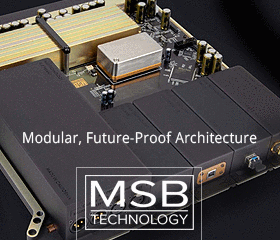Not a valid comparison. A PC can take 10 minutes to open that Excel file from the CD Rom, trying and re-trying until it's successful.
Playing a CD, in real-time, the player cannot do that, so it gives up after a while, and "fills in" for the data that couldn't be read.
This is why some ripping software is better than the others (on the same hardware), as they keep trying and trying, while most will just do a cursory pass, and "fill in" when not successful.
Also, that's why disc transports that are really "memory players" (like the MSB or the PS Audio) have the edge here, as they operate like a PC reading a CD Rom, with multiple tries until success, since they're not operating in real-time.
alexandre
The question is if bit errors really are an issue, even with a transport reading in real time.
Robert Harley says on this subject:
Much of the current speculation as to why this [that the music from server sounds better than from transport] should be the case focuses on the fact that the Exact Audio importing software used in Sooloos and many other hard-drive-based systems can read sections of the disc multiple times if data errors are detected. The implication is that random bit errors affect sonic qualities such as soundstage depth and the reproduction of timbre.
I disagree. CD?s error-correction system can completely correct burst errors of up to 4000 successive bits. My experience performing bit- for-bit comparisons between source data and replicated CDs when I worked as a CD mastering engineer suggests that bit errors are virtually nonexistent. If CDs were rife with errors, computer software couldn?t reliably be delivered on CD (CD-ROM does, however, have an extra layer of error detection and correction but is invoked only when discs have been mishandled and become damaged).
Let?s perform a thought experiment. Suppose that uncorrected bit errors are common in CD playback. What are the sonic consequences of those errors? If a 16-bit word?s least significant bit (LSB) were changed from a zero to a one (or from a one to a zero), an amplitude error would be introduced that is one part in 65,536. (The number of amplitude steps in a quantization word is 2n, where n is the number of bits in the word; 216 is 65,536.) You would never hear an amplitude error that small in a single sample. But let?s say the bit error occurred in the word?s most significant bit (MSB). The value of the MSB is the value of the other 15 bits combined plus one (32,769). The MSB represents just over half the amplitude of a full- scale signal. Changing the MSB from a zero to a one, or from a one to a zero, would cause the signal level to suddenly increase or decrease by half the full-scale amplitude, producing a loud click at every error. Do you hear clicks when playing CDs?
Note also that bit errors would cause momentary jumps in signal amplitude, but would not affect factors such as soundstage depth or instrumental timbre. Bitstreams read from different media (CD, CD-R, hard disk) can sound different from one another, but not because of data errors. The most likely explanation is that hard drives deliver a bitstream with greater timing precision (lower jitter). If the bits are the same, and the sound is different, the only thing left is jitter.













